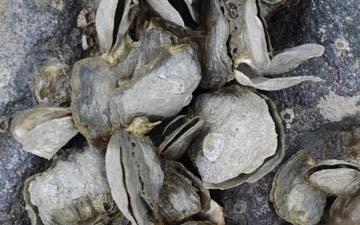I recently moved away from the coast, yet my inbox continues to overflow with news from aquatic research. The inundation is true not just for me — because oceans, rivers and the atmosphere interact in a global hydrologic cycle, we’re always surrounded by what the water of the world has to offer. And what, exactly, is that? Lately, water has been my window into food supply, toxicology and sustainable ecosystems:

Oysters to feed us in the future
Oysters are food for folks locally and worldwide, but their production and viability in marine oyster beds are threatened by ocean acidification. Studying the chemistry behind the water’s changes, as researchers in the UC Davis College of Letters and Science and College of Biological Sciences are doing, helps the shellfishery community raise oysters in locations and at times most conducive to their health.
Genetic changes outdo industrial toxins
To survive amid industrial pollutants, engage your genes. The killifish in Atlantic estuaries can tolerate toxins in their home waters — up to 8000 times the level that would destroy other invertebrates — due to existing diversity within their genome. Their evolutionary advantage likely exceeds ours, but we still gain insight from their adaptations. Genomic analyses of killifish by professor Andrew Whitehead, in the UC Davis Department of Environmental Toxicology, lays the groundwork for future studies to tease out when and why organisms, including humans, are sensitive to certain environmental chemicals.
White abalone create community
White abalone are no longer sweeping the Pacific Ocean floor clean for new life. Through overfishing and pollution, these caretakers were nearly swept out of existence. Their population is now rebounding in a captive breeding program led by Kristin Aquilino at the Bodega Marine Laboratory. With abalone restoration in the wild comes the promise of better functioning oceanic communities and recreational white abalone diving — and dining — in our future.
Read more
Catch up on 9 Ways UC Davis is Rescuing Oceans and a recent one health approach to sea otter safety.
Amy Whitcomb is a member of the web team in Strategic Communications.